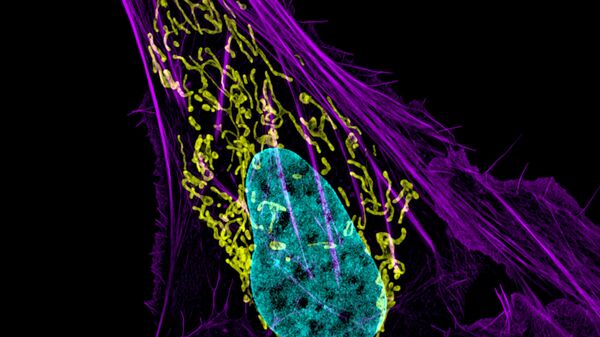The ultracompact sensor, developed at the Moscow Institute of Physics and Technology’s Laboratory of Nanooptics and Plasmonics, enables doctors to identify tumor markers whose presence in the body signals the emergence and growth of cancerous tumors.
It will also help diagnose, HIV, hepatitis, herpes and many other diseases long before they can be detected by any other method, and will pave the way for a new-generation diagnostics.
Calculations done by the researchers showed that the new sensor will combine high sensitivity with a comparative ease of production.
Its miniature dimensions allow it to be used in all portable devices, like smartphones, wearable electronics, etc.
One chip, several millimeters in size, will be able to accommodate several thousand such sensors, configured to detect different particles or molecules.
The price, thanks to the simplicity of the design, will most likely depend on the number of sensors, and be much more affordable than its competitors.



